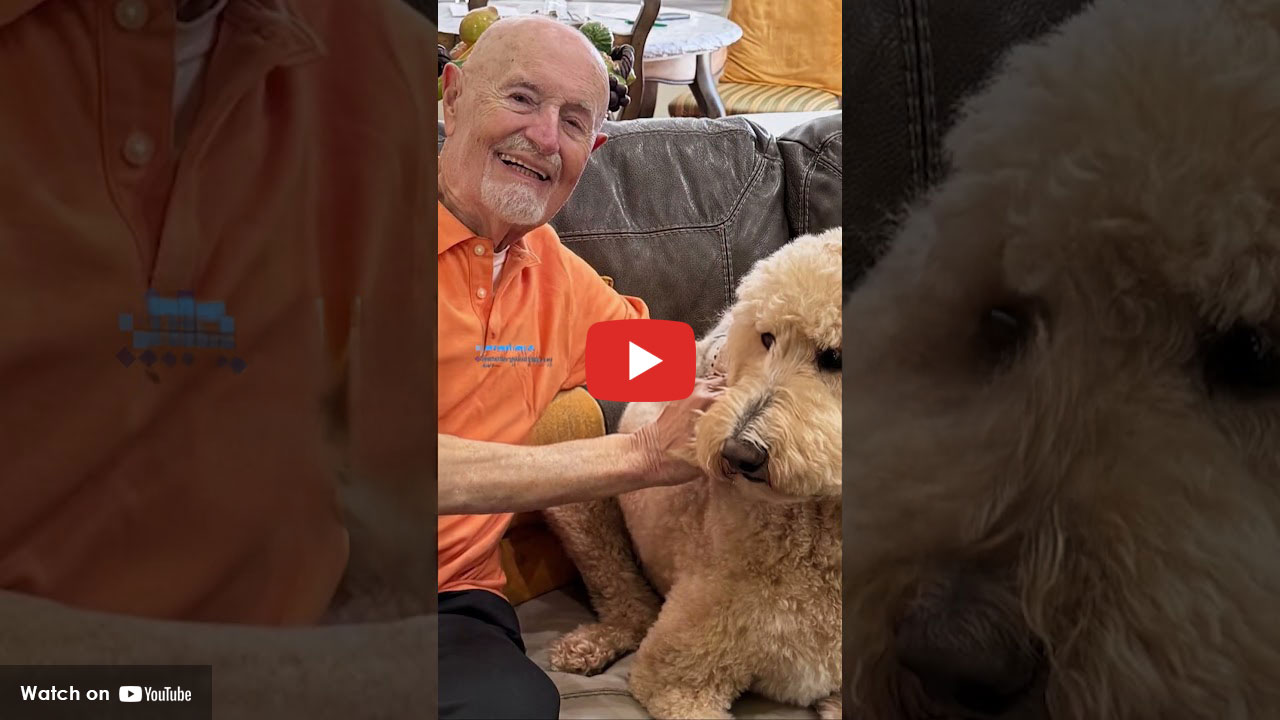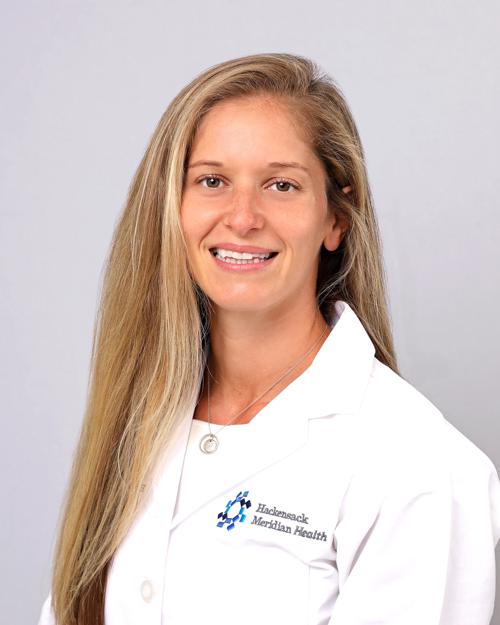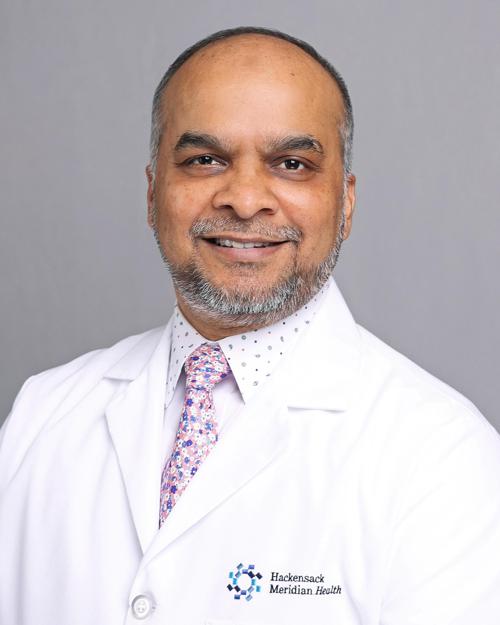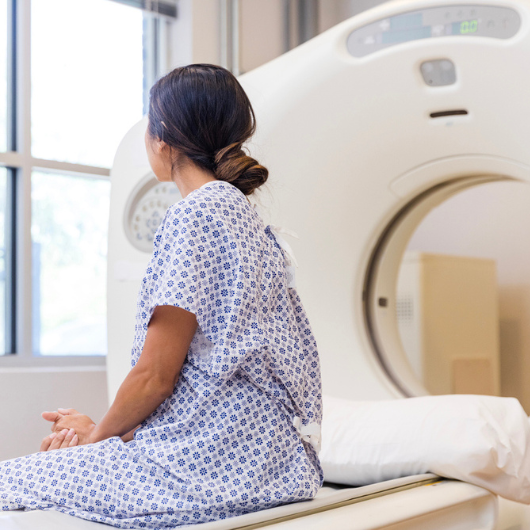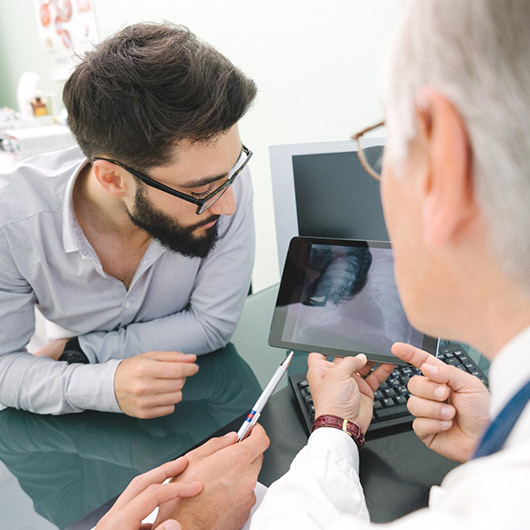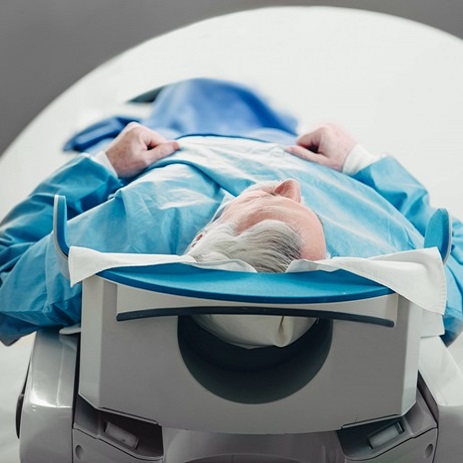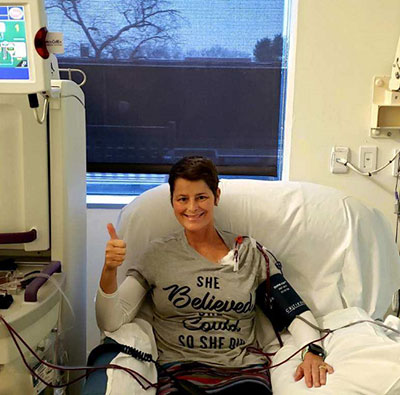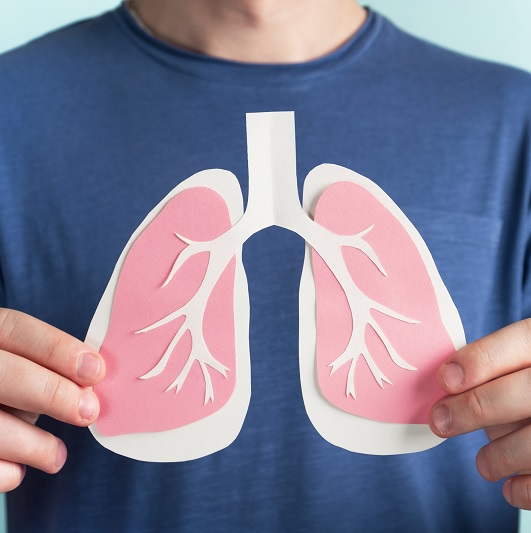Decades After 911 Nicks Cancer Diagnosis Reveals Lingering Health Risks
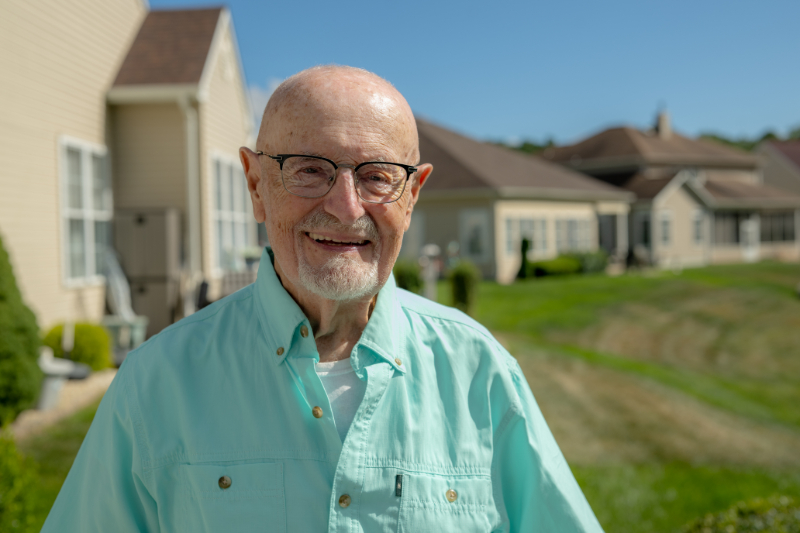
September 11, 2025
Taking long, two-mile walks and playing catch with his golden doodle Roxie were everyday joys for 84-year-old Nicholas Bonamassa of Waretown, NJ. Life was steady and happy – until nearly 25 years after September 11, when Nick discovered the tragedy of that day was still taking a toll on his health.
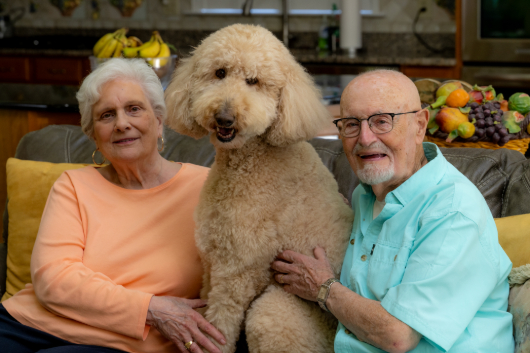
A Day We’ll Never Forget
On September 11, 2001, Nick was a vice president at a bank in Lower Manhattan. Just after 9 a.m., the unthinkable happened – two planes crashed into the World Trade Center Towers, only blocks away from his office.
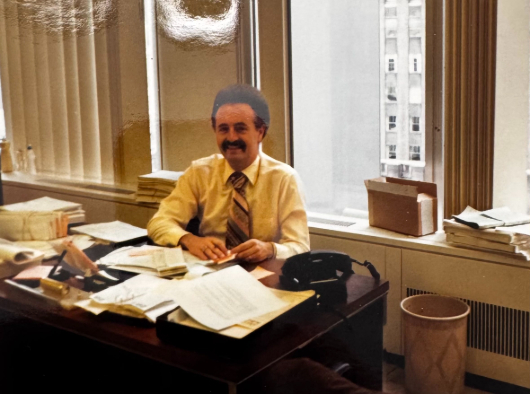
Because of his senior position, Nick stayed behind longer than many of his coworkers. When he was finally told he could leave, he and others were handed paper towels to hold over their faces as they made their way out of the city.
“We weren’t offered much guidance; we were just told to find our way home,” he remembers. “There was dust and debris all over. We just walked through it; it didn’t dawn on us that this was a health problem.”
A Healthy Life Interrupted
After a full and successful career, Nick retired not long after 9/11. He filled his days with golf, time with family and serving his community. He remained healthy and active for decades.
But last winter, a simple accident changed everything. While playing with Roxie, Nick was knocked over and developed rib pain. When the pain didn’t go away, his granddaughter urged him to get checked out at Southern Ocean Medical Center.
An Unexpected Diagnosis
At the hospital, an X-ray revealed Nick had a collapsed lung and suspicious fluid around it. He was admitted right away. Over the course of a week, doctors drained his lung and ran more tests.
Thoracic surgical oncologist Rachel NeMoyer, M.D., performed a surgical biopsy that confirmed a shocking diagnosis: spindle cell carcinoma, a rare and aggressive cancer often linked to asbestos exposure and other airborne toxins.
In Nick’s case, the spindle-shaped cells were found in the lining of his lungs, making it a form of mesothelioma – a cancer that develops in the protective lining around the lungs.
“I never felt sick or weak – it was a complete shock,” Nick says. “It hit me like a ton of bricks, and had I not fallen and thought I broke something, I probably would have shrugged it off.”
Cancer Lurking In the Shadows
“For Nick, he had unfortunately been down at Ground Zero on 9/11, and we found that a lot of people who had been exposed to the toxins in the air, asbestos or other carcinogens from the buildings and fires, can lead to an increased risk for mesothelioma,” says Dr. NeMoyer.
This silent danger can remain hidden for decades before symptoms show up.
“It was reported that anybody within a one-and-a-half-mile radius was exposed to asbestos at that time, and Nick was working only one block away,” explains hematologist oncologist Hameem Kawsar, M.D., Ph.D. “And he continued to work there after 9/11, not using masks; so he had significant exposure.”
While the news of this was shocking, Nick felt secure and cared for by his doctors. “I was very happy and comfortable with my oncologist, Dr. Kawsar. He explained everything from day one, how sick I was and how rare this is,” Nick says. “He gives me strength, and I think I was treated terrifically; the hospital has done a good job.”
Warning Signs of Mesothelioma
Mesothelioma is rare, and symptoms often don’t appear until the cancer has progressed. Some warning signs for pleural mesothelioma (cancer of the lining of the lungs) include:
- Shortness of breath or difficulty breathing
- Pain or pressure in the chest or lower back
- Persistent cough
- Difficulty swallowing
- Swelling in the face and arms
Because many of these symptoms can look like other illnesses, many people don’t realize something serious is happening until the disease is advanced.
Preventative screenings can catch cancer earlier, and high-risk patients like Nick who get screened have about a 20% lower risk of dying from lung cancer, Dr. Kawsar shares.
The Importance of Lung Cancer Screenings
Nick’s story highlights why regular health screenings matter, especially for people with a history of exposure to harmful substances, like asbestos or long-time smokers.
Lung cancer is often caught late because symptoms don’t usually appear until the disease has advanced. But with screenings, doctors can sometimes find cancer earlier, when it’s more treatable.
Who Should Consider Lung Cancer Screenings?
An annual lung cancer screening may be right for you if you:
- Are between the ages of 50 and 80
- Have a history of heavy smoking (even if you quit within the last 15 years)
- Were exposed to toxins such as asbestos, dust or smoke (like those at Ground Zero)
- Have a family history of lung cancer or other risk factors
The most common screening is a low-dose CT (LDCT) scan, which uses a small amount of radiation to take a detailed picture of the lungs. This test can catch small nodules or abnormalities before they cause symptoms.
Dr. Kawsar recommends having open and honest conversations with your doctor to see if a preventative screening is right for you.
Next Steps in Nick’s Treatment
Nick’s medical team created a personalized plan to manage his cancer.
“Because the fluid in Nick’s lungs contained the cancer cells, it is considered stage 4 cancer and could not be surgically removed,” says Dr. Kawsar. “This is a cancer that cannot be cured, but it can be treated.”
Nick’s care includes:
- Oncology treatment: Nick receives immunotherapy every couple of weeks.
- “In the past, we treated this cancer with chemotherapy because immunotherapy wasn’t available,” adds Dr. Kawsar. “Today, immunotherapy offers a better option, as it’s often easier for patients to tolerate and usually causes fewer side effects.”
- What’s the difference? Chemotherapy attacks cancer cells but also attacks rapidly growing normal cells of the body, while immunotherapy works by boosting the body’s immune system to fight the cancer.
- Cardiology oversight: Since Nick has stents in his heart, his doctors have worked closely together to balance heart and cancer care.
“The perception is that cancer is deadly, but with advancements in science, we can detect it early and cure it,” says Dr. Kawsar. “If it is diagnosed late, we can still treat it and prolong life, in some cases, with the use of targeted therapy and immunotherapy.” He touts that early screening and medication management can help patients live longer with minimal side effects.
Hope for the Future
Married to the love of his life, Barbara, for 64 years, Nick credits his positive outlook to his trust in his doctors and his faith. “None of us know what God has in store for any of us, but I'm hoping He keeps me around a while,” he adds. “I’d like to see my grandchildren get married and have families of their own. We try to keep our faith, and we try to stay positive.”
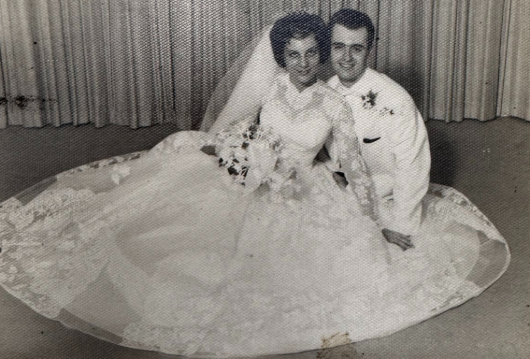
While Nick’s diagnosis was unexpected, his story shines a light on an important reality: the health effects of 9/11 are still unfolding. If you or a loved one were near Ground Zero on or after September 11, regular check-ups and honest conversations with your doctor are important.
Awareness, early detection and support can make all the difference.
Next Steps & Resources:
- Meet our experts: Rachel NeMoyer, M.D. and Hameem Kawsar, M.D.
- To make an appointment with a doctor near you, call 800-822-8905 or visit our website.
- Learn more about lung cancer care at Hackensack Meridian Health.
- Take Hackensack Meridian Health’s Hennessy Institute free online risk assessment questionnaire to learn your risk of cancer and find out if you qualify for genetic testing.
The material provided through HealthU is intended to be used as general information only and should not replace the advice of your physician. Always consult your physician for individual care.

